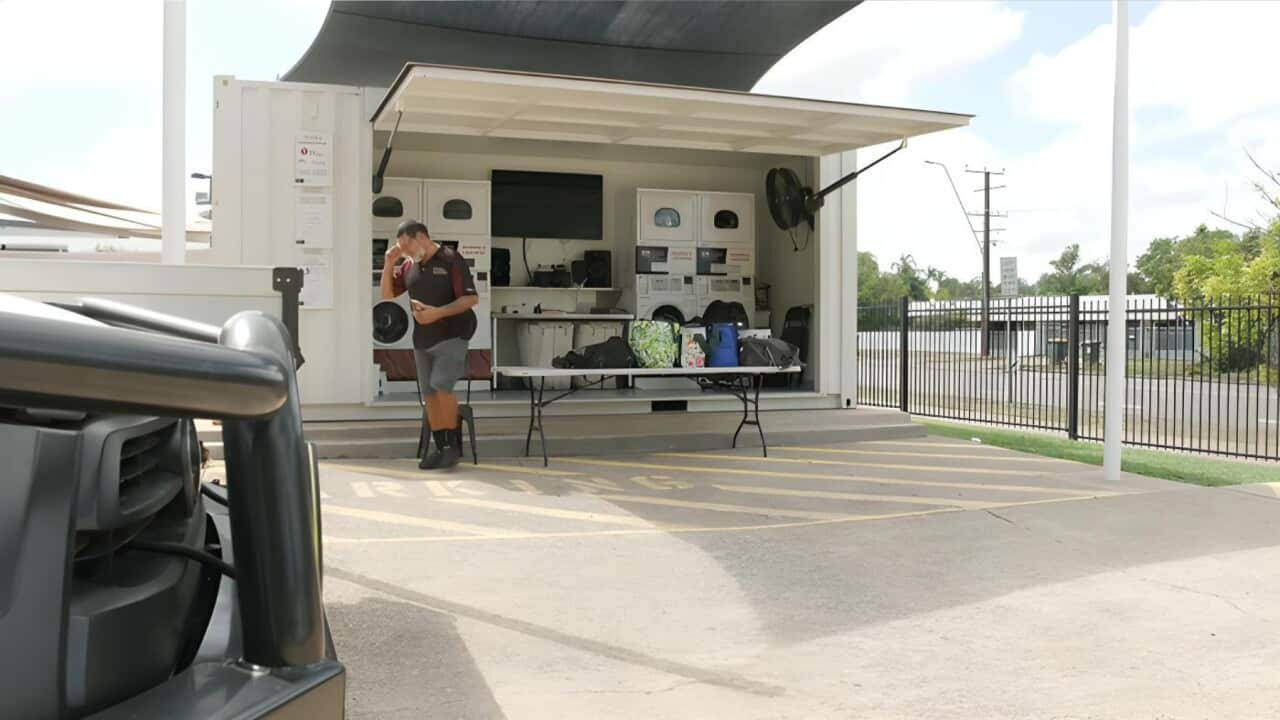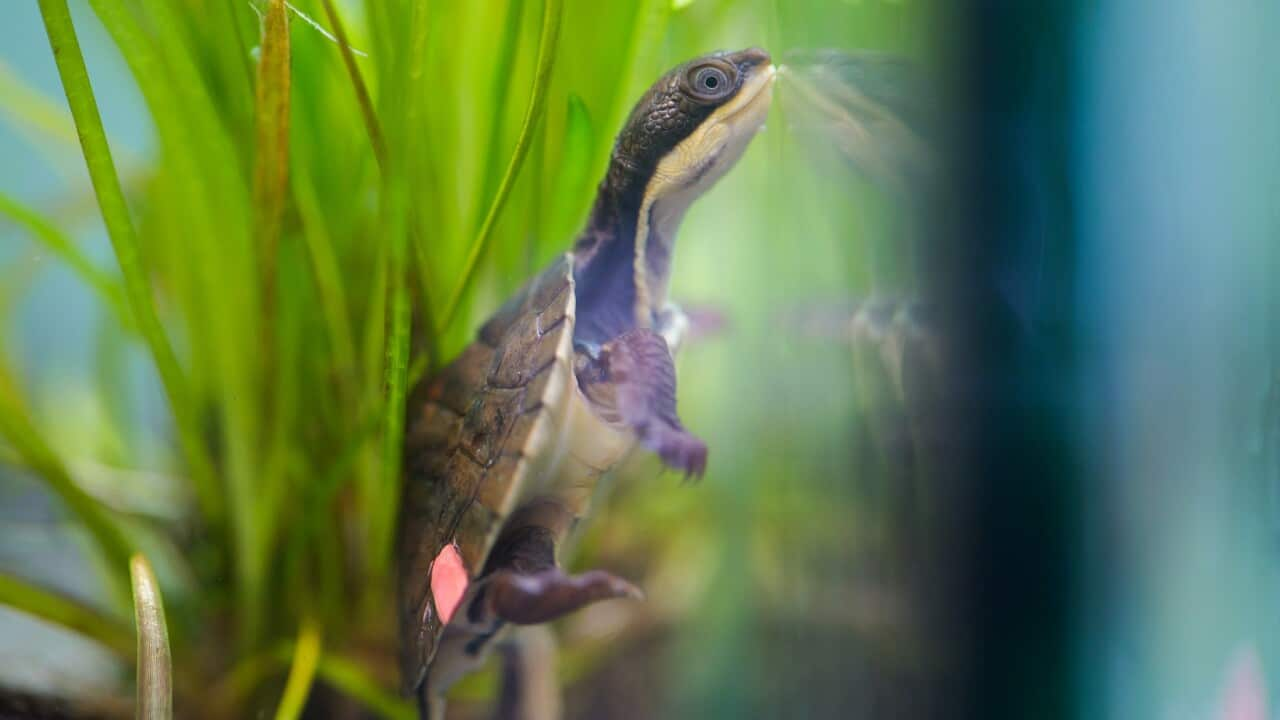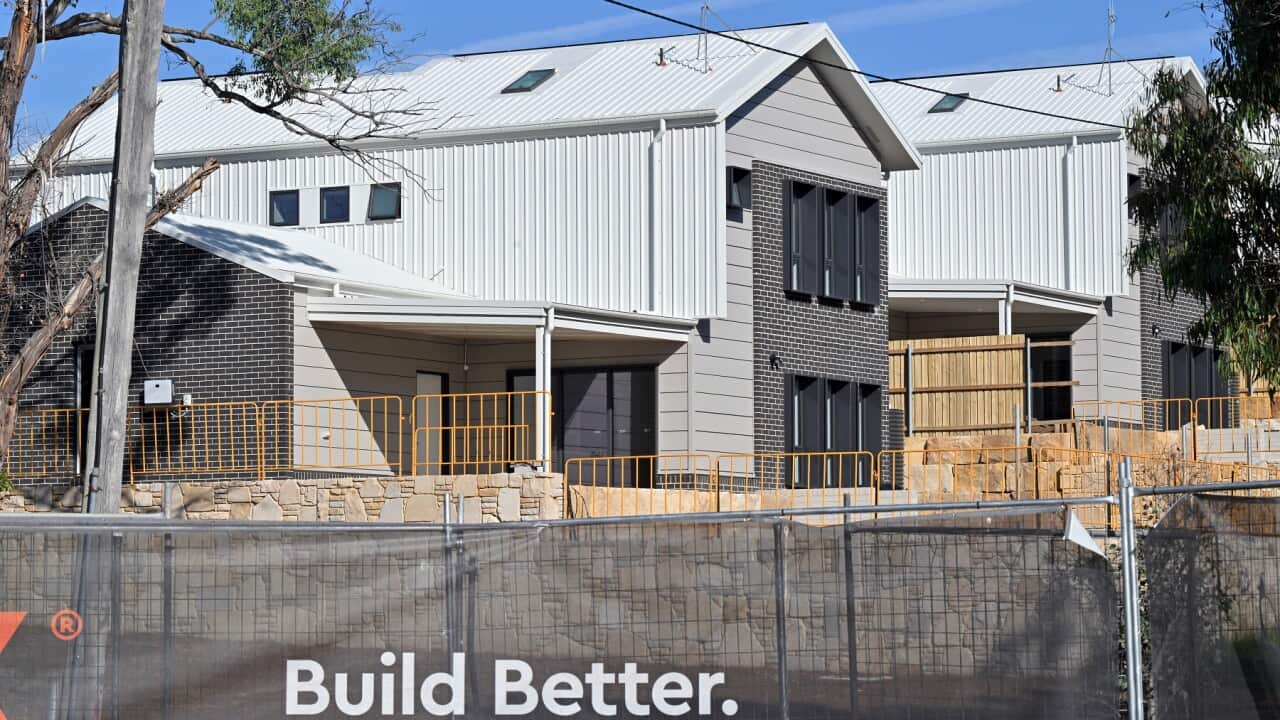English
One young doctor is on a mission to raise thousands of dollars for a free laundry service in remote Northern Territory communities.
Remote Laundries Project has seen improvements in remote Northern Territory communities with the rise of skin infections and scabies reduced.
With the aim of raising $20-thousand dollars for Remote Laundries Project, Natasha Tile is embarking on a charity run across the renowned Camino trail from France to Spain (for over 8 days).
She says these diseases are easily preventable, as it's largely prevalent due to socioeconomic factors.
Working as a registrar at the Darwin Hospital, Ms Tile has seen the impacts first-hand in the community.
"I remember seeing a patient who was only a year younger than me. She was having a heart failure because she had gone to Adelaide, she had open heart surgery, and I remember the nurses telling me very distinctly about her cousin who had died on one bed in the E-D ((Emergency Department)) while her brother [died] in another. She was my age, she was so short of breath, and I just thought how is this fair, how have I got to avoid this. She ended up on 20 plus medications a day."
She has now turned to her love of running to contribute to the cause.
Untreated scabies infestations can lead to dangerous secondary infections. The skin condition is caused by mites that burrow under the skin, making it very itchy.
This is a common problem in remote Northern Territory Aboriginal communities, with up to 50 per cent of children and 25 per cent of adults being affected.
The scabies is then a contributing factor in rheumatic heart disease, which, despite being eradicated in many parts of the world, is endemic in remote regions of the Territory.
There are five free laundries available to the Northern Territory communities, where scabies infestations run rife.
Sam Autio is the Remote Laundries Darwin Team Leader. He says a lot of these infections happen because of overcrowding and the lack of sanitation within communities.
"With the overcrowding in the houses and you know, the cost of living... A washing machine in the remote communities cost about 15-hundred dollars. It's a lot of money, you know for a family that are doing stuff like CDPs - basically working for the doll - and then you're paying so much more for everything else."
Mr Autio says the work they do is very important, and has reduced the cases of heart disease.
Rheumatic heart disease or RHD is caused by repeated bouts of rheumatic fever which permanently damage the heart.
Children living in overcrowded, unclean houses in rural and remote Aboriginal communities are most at risk.
Six years ago, the first laundry opened in the remote community of Barunga, 80 kilometres southeast of Katherine.
The community has since seen the spread of scabies reduced by up to 60 per cent.
Mr Autio says he's seen the impact for himself.
"In Barunga I believe the cases of rheumatic heart disease have gone down 60 per cent. And there has been no new cases since our remote laundry was built there. So you know, we can nip this disease in the butt. We shouldn't be having like third world diseases in Australia. It's not right and you know we can do something about that."
Working with Remote Laundries has also provided employment opportunity for people like Mr Autio.
He says they are running at capacity 98 percent of the time. People from the community will bring their laundry and Remote Laundries will get them washed, sanitised and dried.
The machines are programmed to be above 55 to 60 degrees for ten minutes. Every wash gets the use of sanitiser and softener and detergent.
Candice Busham is the Remote Laundries Program Manager. She says they are proud of what they have achieved thus far with their project.
"Our solution is a fully automated laundry that was specifically designed to kill scabies mite and and skin pathogens. Each of the laundries is equipped with four commercial grade laundries, sorry, washers dryers, and they have reliable access to hot water, and power and they are free for community and they also employ five locals. So we create employment. Looking at the stats the other day I worked out that we have injected 680-thousand dollars in wages into our remote communities."
The funds are crucial as the charity looks to grow the number of laundries to 72.
"I know that the Remote Laundries Project - you know have got five and to expand to 72 but all those laundries require so much maintenance - like there's a lot of cost in the maintenance and ongoing upkeep of the laundries, so yeah I really hope that this project can keep moving forward. And we can start to remove some of the disparities seen between urban centres and rural communities.
Ms Busham says the funds Natasha Tile is raising will help employ more staff in her team.
"Well, 20-thousand will help us employ five remote laundry staff, team members out in the communities, so that will contribute to the wages. That will also help educate community members on scabies and rheumatic heart disease. It will also help encourage people in the community to come and use the remote laundry."
Her team is seeing improved social and economic outcomes, as they continue to provide secure and purpose built, fully automated and free laundromats to remote communities.
This, as they strive for sustainable employment positions for each community.
Italiano
Una giovane dottoressa sta cercando di raccogliere migliaia di dollari per un servizio di lavanderia gratuito nelle comunità remote del Northern Territory.
Il Remote Laundries Project sta contribuendo a ridurre il numero di infezioni della pelle e di casi di scabbia nelle comunità remote del Northern Territory.
Con l'obiettivo di raccogliere 20.000 dollari per il Remote Laundries Project, Natasha Tile sta per cominciare una corsa di beneficenza attraverso il famoso sentiero del Camino di Santiago, dalla Francia alla Spagna (per oltre otto giorni).
Secondo lei queste malattie sono facilmente prevenibili, perché la loro diffusione è dovuta soprattutto a fattori socio-economici.
Lavorando come specializzanda presso il Darwin Hospital, Tile ha visto in prima persona l'impatto di queste malattie nella comunità.
"I remember seeing a patient who was only a year younger than me. She was having a heart failure because she had gone to Adelaide, she had open heart surgery, and I remember the nurses telling me very distinctly about her cousin had died on one bed in the E-D ((Emergency Department)), her brother in another and yeah. She was my age, she was so short of breath, and I just thought how is this fair, how have I got to avoid this and she is ended up on 20 plus medications a day."
Ora si è affidata al suo amore per la corsa per contribuire alla causa.
Le infestazioni di scabbia non trattate possono portare a pericolose infezioni secondarie. Questa malattia della pelle è causata da acari che si insinuano sotto la pelle, rendendola molto pruriginosa.
Si tratta di un problema diffuso nelle comunità aborigene remote del Northern Territory, che colpisce fino al 50% dei bambini e fino al 25% degli adulti.
La scabbia è poi un fattore che contribuisce alla cardiopatia reumatica che, nonostante sia stata debellata in molte parti del mondo, è endemica nelle regioni remote del Territorio.
Ci sono cinque lavanderie gratuite a disposizione delle comunità del Northern Territory, dove le infestazioni di scabbia sono molto diffuse.
Sam Autio è il capo squadra delle lavanderie remote di Darwin. Secondo lui, molte di queste infezioni si verificano a causa del sovraffollamento e della mancanza di servizi igienici nelle comunità.
"With the overcrowding in the houses and you know, the cost of living... A washing machine in the remote communities cost about 15-hundred dollars. It's a lot of money, you know for a family that are doing stuff like CDPs - basically working for the doll - and then you're paying so much more for everything else."
Secondo Autio questa iniziativa è molto importante e ha ridotto i casi di cardiopatia.
La cardiopatia reumatica o RHD è causata da ripetuti attacchi di febbre reumatica che danneggiano permanentemente il cuore.
I bambini che vivono in case sovraffollate e sporche nelle comunità aborigene rurali e remote sono i più a rischio.
Sei anni fa è stata aperta la prima lavanderia nella comunità remota di Barunga, 80 chilometri a sud-est di Katherine.
Da allora la comunità ha visto ridurre la diffusione della scabbia fino al 60%.
Autio ha detto di aver visto l'impatto con i propri occhi.
"In Barunga I believe the cases of rheumatic heart disease have gone down 60 per cent. And there has been no new cases since our remote laundry was built there. So you know, we can nip this disease in the butt. We shouldn't be having like third world diseases in Australia. It's not right and you know we can do something about that."
La collaborazione con Remote Laundries ha anche offerto un'opportunità di lavoro a persone come Autio.
Autio dice che il 98% delle volte funzionano a pieno regime. Le persone della comunità portano il loro bucato e Remote Laundries lo lava, lo igienizza e lo asciuga.
Le macchine sono programmate per stare al di sopra dei 55-60 gradi per dieci minuti. Ogni lavaggio prevede l'uso di igienizzante, ammorbidente e detersivo.
Candice Busham è la responsabile del programma delle lavanderie a distanza, e ha detto che tutti sono orgogliosi dei risultati ottenuti finora con il loro progetto.
"Our solution is a fully automated laundry that was specifically designed to kill scabies mite and and skin pathogens. Each of the laundries is equipped with four commercial grade laundries - sorry, washers dryers, and they have reliable access to hot water, and power and they are free for community and they also employ five locals. So we create employment. Looking at the stats the other day I worked out that we have injected 680-thousand dollars in wages into our remote communities."
I fondi sono fondamentali perché l'associazione intende far crescere il numero di lavanderie fino a 72.
"I know that the Remote Laundries Project - you know have got five and to expand to 72 but all those laundries require so much maintenance - like there's a lot of cost in the maintenance and ongoing upkeep of the laundries, so yeah I really hope that this project can keep moving forward. And we can start to remove some of the disparities seen between urban centres and rural communities.
Busham afferma che i fondi raccolti da Natasha Tile serviranno ad assumere altro personale nel suo team.
"Well 20-thousand will help us employ five remote laundry staff, team members out in the communities, so that will contribute to the wages. That will also help educate community members on scabies and rheumatic heart disease. It will also help encourage people in the community to come and use the remote laundry."
Il suo team sta vedendo migliorare i risultati sociali ed economici, continuando a fornire alle comunità remote lavanderie a gettoni sicure e costruite ad hoc, completamente automatizzate e gratuite.
Tutto questo avviene mentre il team si sforza di creare posti di lavoro sostenibili per ogni comunità.






